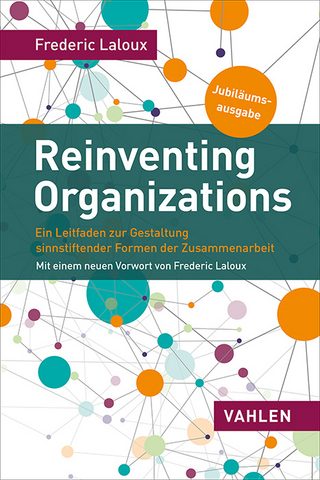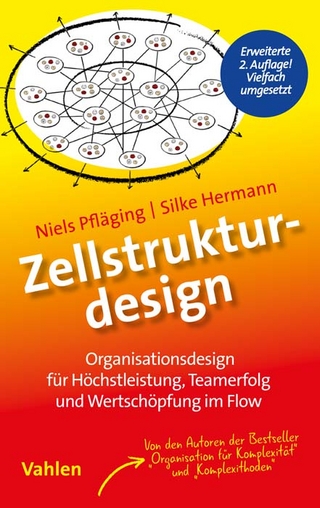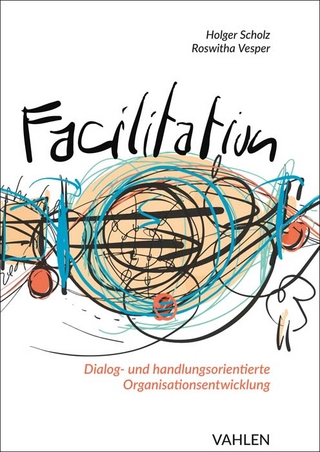
Management Scholarship and Organisational Change
Representing Burns and Stalker
Seiten
2019
Routledge (Verlag)
978-1-138-69838-3 (ISBN)
Routledge (Verlag)
978-1-138-69838-3 (ISBN)
Miriam Green argues that representations of Burns and Stalker’s text, fully legitimated in the academy in the UK and the US, are highly contestable and have important consequences for the understanding of change initiatives on the part of practitioners such as managers and consultants.
Change is a crucial and inescapable process for many organisations. It remains a constant challenge for managers and many change management initiatives fail. Burns and Stalker’s seminal text on managing change, The Management of Innovation, has often been used as a basis for research in mainstream management journals and has been represented as an important theory in popular and long-established management textbooks. The issues raised in that book are still being grappled with by academics and practitioners today.
Miriam Green provides a critical analysis of the mainstream construction of knowledge on change management through an examination of representations of that text. The main thesis of her book is that this literature, though valuable, does not provide a full picture. Its objectivist approach ignores the role of other factors raised in the original study. These factors include the effects of power, politics, resistance and employee influence on the outcomes of managerial change strategies and on other organisational processes, with important consequences for the understanding of change initiatives by both academics and practitioners. This is part of an ongoing debate in management studies and more widely in the social sciences about theoretical approaches and research methods.
The originality of this book lies in its in-depth comparison of an entire monograph on organisations facing technological and commercial change, with an equally in-depth analysis of the ways this work has been represented and used as a basis for teaching and research. It highlights the limitations of the exclusive use of one approach to explain the complications arising from organisational change. It challenges the scientific justification offered for that approach and supports arguments for more inclusive and sustainable scholarship, of greater relevance to academics, managers and other organisational stakeholders.
Change is a crucial and inescapable process for many organisations. It remains a constant challenge for managers and many change management initiatives fail. Burns and Stalker’s seminal text on managing change, The Management of Innovation, has often been used as a basis for research in mainstream management journals and has been represented as an important theory in popular and long-established management textbooks. The issues raised in that book are still being grappled with by academics and practitioners today.
Miriam Green provides a critical analysis of the mainstream construction of knowledge on change management through an examination of representations of that text. The main thesis of her book is that this literature, though valuable, does not provide a full picture. Its objectivist approach ignores the role of other factors raised in the original study. These factors include the effects of power, politics, resistance and employee influence on the outcomes of managerial change strategies and on other organisational processes, with important consequences for the understanding of change initiatives by both academics and practitioners. This is part of an ongoing debate in management studies and more widely in the social sciences about theoretical approaches and research methods.
The originality of this book lies in its in-depth comparison of an entire monograph on organisations facing technological and commercial change, with an equally in-depth analysis of the ways this work has been represented and used as a basis for teaching and research. It highlights the limitations of the exclusive use of one approach to explain the complications arising from organisational change. It challenges the scientific justification offered for that approach and supports arguments for more inclusive and sustainable scholarship, of greater relevance to academics, managers and other organisational stakeholders.
Miriam Green was for many years a Senior Lecturer at London Metropolitan University and is currently teaching at Icon College of Technology and Management. She completed a PhD in Organisation Studies, on which this book is based, and has also written journal articles and book chapters in this field. Her current research interests include critiques of neo-liberalism and postmodernism.
Foreword
Acknowledgements
1. Introduction
2. Meanings of texts
3. Representations of texts
4. Textual analysis
5. Paradigm commensurabilities
6. The academy
7. Science versus scientificity
8. Dialectical oppositions
9. Conclusions
Index
| Erscheinungsdatum | 25.01.2019 |
|---|---|
| Reihe/Serie | Finance, Governance and Sustainability |
| Verlagsort | London |
| Sprache | englisch |
| Maße | 156 x 234 mm |
| Gewicht | 430 g |
| Themenwelt | Wirtschaft ► Allgemeines / Lexika |
| Wirtschaft ► Betriebswirtschaft / Management ► Planung / Organisation | |
| Wirtschaft ► Betriebswirtschaft / Management ► Rechnungswesen / Bilanzen | |
| Wirtschaft ► Volkswirtschaftslehre | |
| ISBN-10 | 1-138-69838-5 / 1138698385 |
| ISBN-13 | 978-1-138-69838-3 / 9781138698383 |
| Zustand | Neuware |
| Informationen gemäß Produktsicherheitsverordnung (GPSR) | |
| Haben Sie eine Frage zum Produkt? |
Mehr entdecken
aus dem Bereich
aus dem Bereich
ein Leitfaden zur Gestaltung sinnstiftender Formen der Zusammenarbeit
Buch | Softcover (2024)
Vahlen (Verlag)
29,80 €
Organisationsdesign für Teamerfolg, Höchstleistung und Wertschöpfung …
Buch | Softcover (2023)
Franz Vahlen (Verlag)
16,90 €
Der Weg zu einer dialogorientierten Organisationsentwicklung
Buch | Softcover (2021)
Vahlen, Franz (Verlag)
44,90 €


